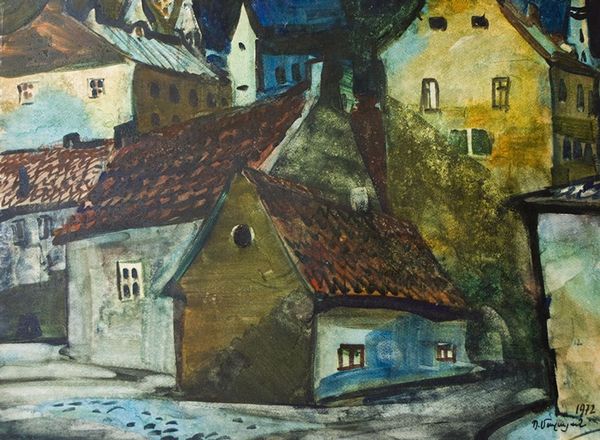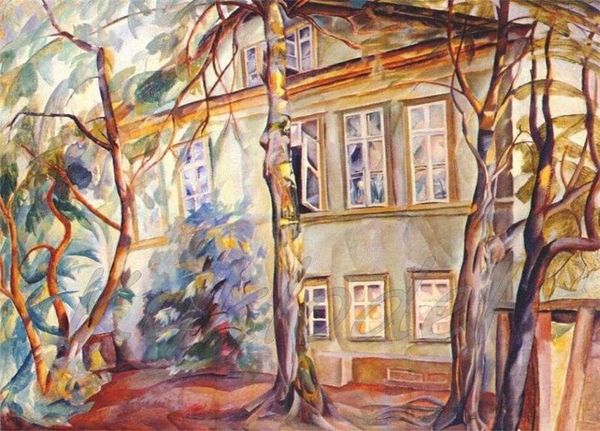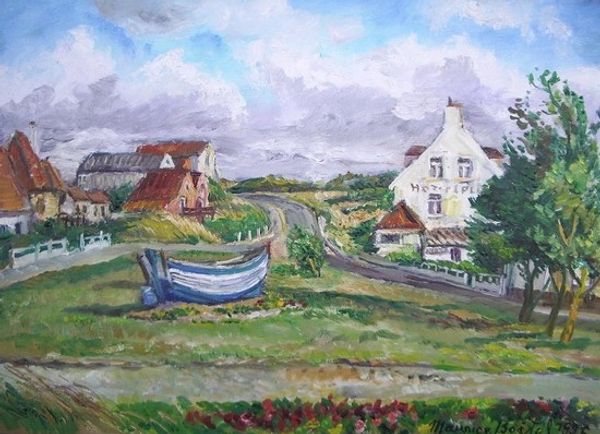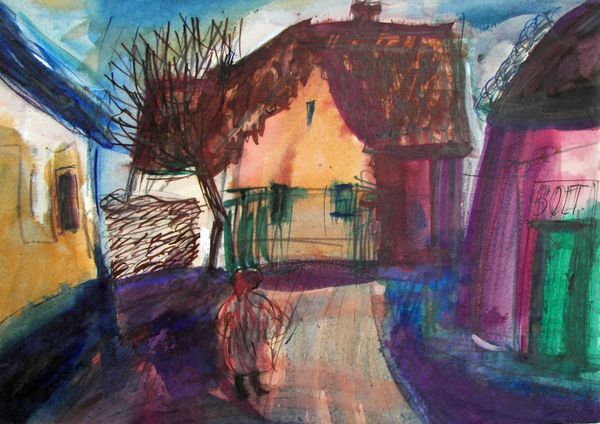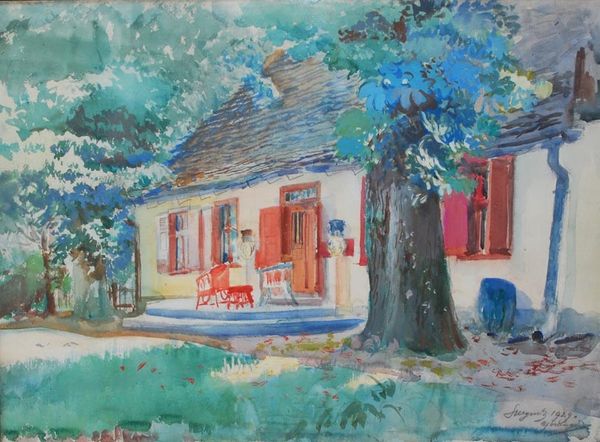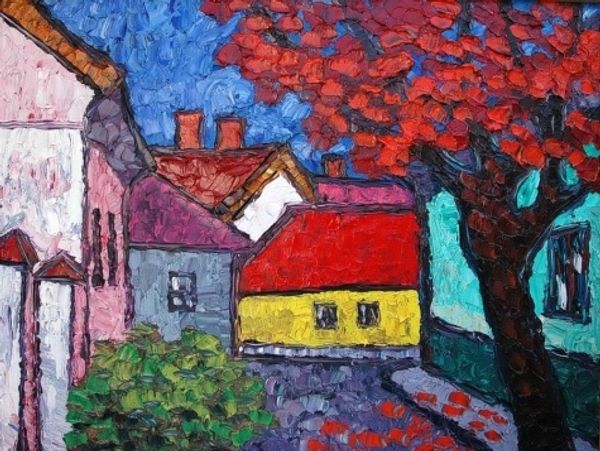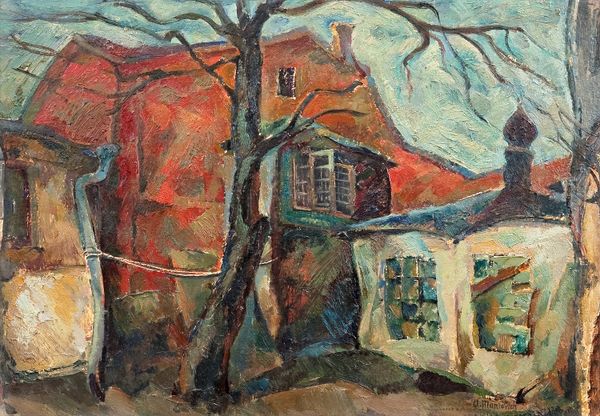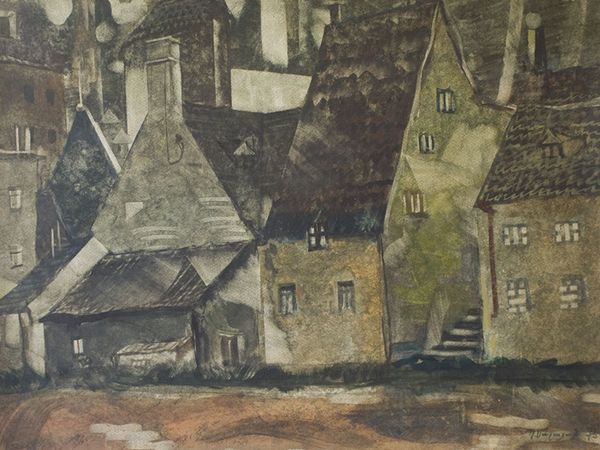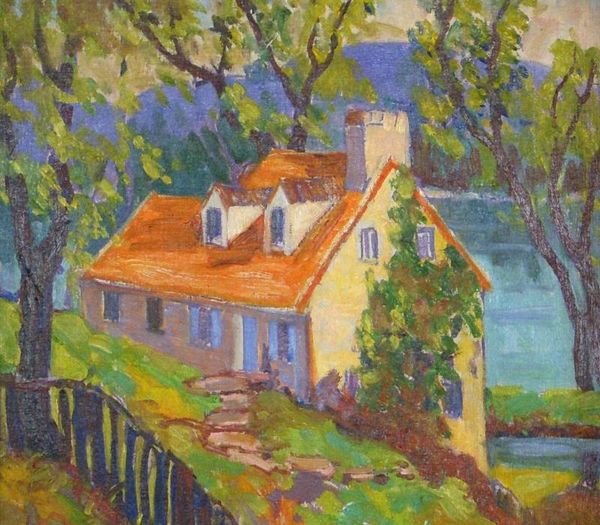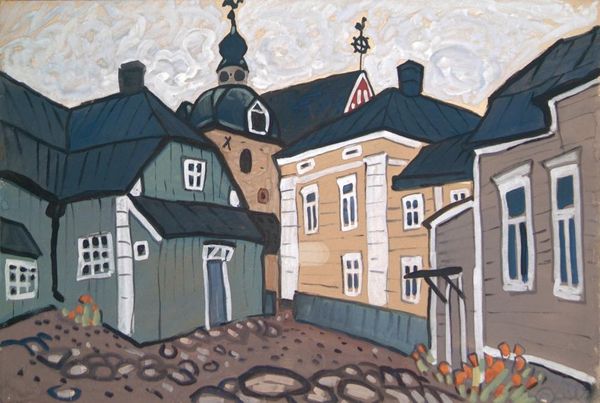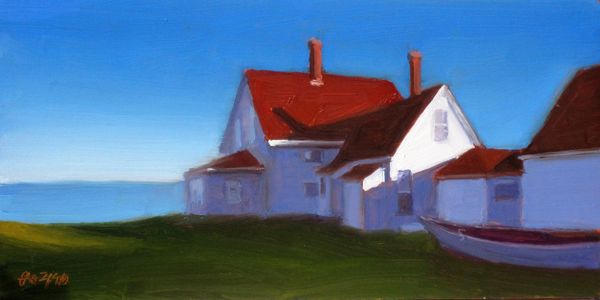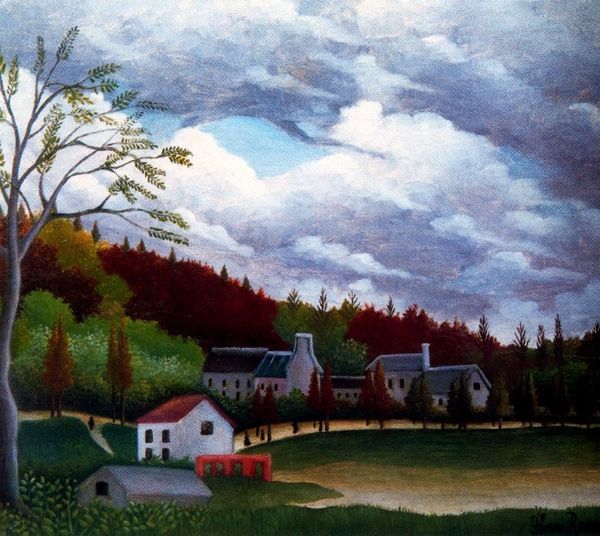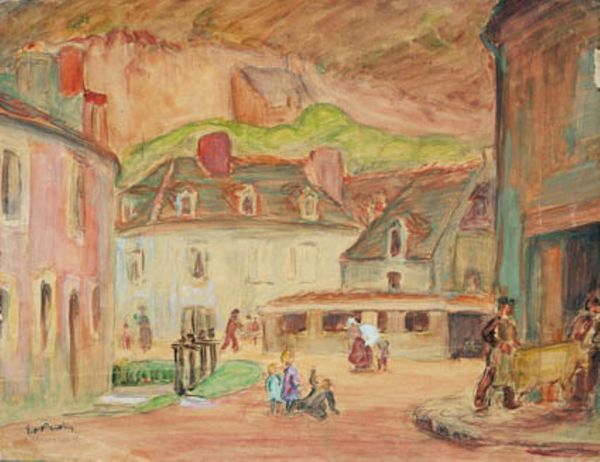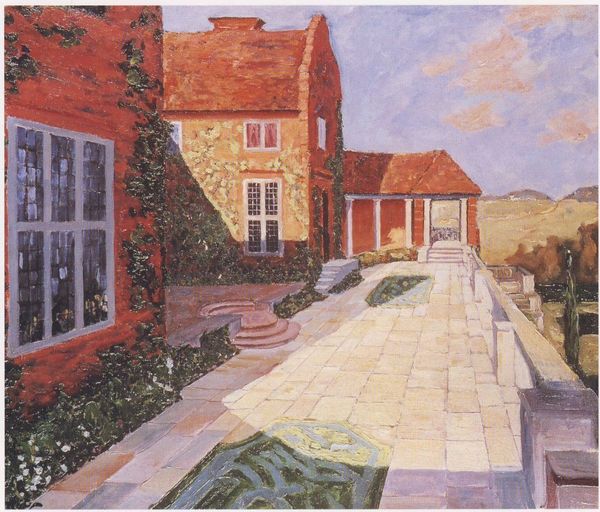
painting, plein-air, oil-paint, impasto
#
painting
#
plein-air
#
oil-paint
#
landscape
#
impressionist landscape
#
oil painting
#
impasto
#
cityscape
#
genre-painting
Dimensions: 100 x 80 cm
Copyright: Copyright: Gazmend Freitag
Editor: Here we have "Southwell," an oil on canvas, painted en plein air by Gazmend Freitag in 2012. The houses, lined up receding into the distance, almost vibrate with the impasto application. What strikes me is how tangible the scene feels because of the paint itself. How would you approach analyzing this piece? Curator: I think the appeal of this painting rests precisely in the dialectic between its subject and the means of its creation. Freitag chose a seemingly traditional subject, a cityscape. But consider the implications of "plein air" - the labor of painting outdoors, contending with weather, light, the very stuff of the environment, all shaping the final product. Doesn't this alter the status of the cityscape itself, turning it into less a scene observed than an artifact produced? Editor: That’s a good point. It's almost like the painting becomes about the act of painting itself, not just the place represented. Curator: Exactly. Think about the materiality of oil paint, the way Freitag manipulates it. Impasto, those thick brushstrokes – they aren’t just descriptive. They emphasize the artist's physical engagement, his labor, with the materials. The scene almost becomes secondary to that intense process. It asks questions about the commodification of art versus lived experience. Editor: So, you’re saying the painting challenges the traditional hierarchy, where the subject is dominant? That the artist, through the active engagement with the process and the physical paint, gives primacy to labor and materials instead? Curator: Precisely! By focusing on the materiality of the paint, and the social implications of painting en plein air, we move away from simply admiring a picturesque scene and consider the physical, almost industrial, realities of its creation. This challenges us to reconsider how art mediates experience, doesn't it? Editor: Definitely. I hadn’t considered the work as a physical record of the act of painting as much as a visual one, but I do now. Thanks for sharing your perspective.
Comments
No comments
Be the first to comment and join the conversation on the ultimate creative platform.
